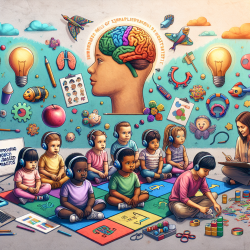The Canadian healthcare system faces significant challenges in providing equitable care to the 2SLGBTQIA+ community. A recent review titled "Review of current 2SLGBTQIA+ inequities in the Canadian health care system" highlights these disparities and offers insights into how practitioners can improve their skills and contribute to reducing these inequities.
The Importance of Cultural Competency
Cultural competency is crucial for healthcare providers working with the 2SLGBTQIA+ community. It involves understanding the specific health needs and challenges faced by sexual and gender minorities. Practitioners should seek training that covers:
- Implicit Bias Training: Unconscious biases can affect judgment and interactions with patients. Training programs should focus on identifying and mitigating these biases.
- Cultural Sensitivity: Understanding the unique experiences of 2SLGBTQIA+ individuals, including intersectionality with other social determinants of health.
- Inclusive Communication: Using appropriate language and pronouns to create a welcoming environment for all patients.
Addressing Systemic Discrimination
The review identifies systemic discrimination as a significant barrier to equitable healthcare access. Practitioners can advocate for changes at both institutional and policy levels by:
- Promoting Inclusive Policies: Encourage healthcare institutions to adopt non-discrimination policies that explicitly include sexual orientation and gender identity.
- Creating Safe Spaces: Ensure that healthcare facilities are welcoming to all, with visible signs of support for the 2SLGBTQIA+ community.
- Advocating for Policy Change: Work towards policies that support equitable access to healthcare services for sexual and gender minorities.
The Role of Continued Education
The lack of training for healthcare professionals is a critical issue highlighted in the review. Practitioners should engage in continued education opportunities that focus on:
- Cultural Competency Workshops: Participate in workshops that provide practical skills for interacting with 2SLGBTQIA+ patients.
- Online Courses and Webinars: Utilize online resources to stay updated on best practices for inclusive care.
The review emphasizes the need for data-backed interventions and evaluation of their efficacy. Practitioners should support research efforts aimed at understanding the 2SLGBTQIA+ healthcare experience and developing effective educational programs.
The Path Forward
Tackling 2SLGBTQIA+ health inequities requires a multifaceted approach involving education, advocacy, and systemic change. Practitioners play a vital role in this process by improving their skills, advocating for inclusive policies, and supporting research initiatives.
Review of current 2SLGBTQIA+ inequities in the Canadian health care system










